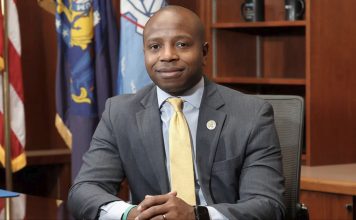The Fair Access to Financial Services Rule (FAFSR), just finalized by the Office of the Comptroller of the Currency (OCC), aims to prevent lenders from blackballing businesses in industries opposed by the left by requiring banks to demonstrate that their loan decisions are “based on quantitative, impartial risk-based standards,” rather than political or reputational concerns.
In its final days, the Trump administration is seeking to disrupt the way progressive activists increasingly impose their will on big business: through banks controlling the loan lifelines to the economy.
Bryan Hubbard, an OCC spokesman, told RealClearInvestigations that the rule codifies longstanding OCC guidance on banks’ obligation to provide equitable access to their services, and will ensure that banks are not “terminating entire categories of customers.”
FAFSR is a response to successful pressure campaigns waged by environmental groups and congressional Democrats, which culminated in every major American bank refusing to finance drilling projects in the Arctic National Wildlife Refuge (ANWR), despite such drilling being authorized by President Donald Trump in 2017.
The Arctic drilling conflict highlights the power of progressive groups to intimidate, cajole, and partner with corporate powerhouses to advance their agenda – often beyond legislative confines. Through boycotts and other pressure campaigns, progressives have sought to push corporations to adopt their social and cultural values on issues ranging from climate-change policy to gun control. Firearms dealers, oil producers, payday lenders, and workers in other controversial industries have had their access to capital stunted by these campaigns, which are often aimed at the circulatory system of the economy – the banking industry.
The rule has been published in the Federal Register, though it may prove short-lived. Many Democrats oppose the measure, and they will have 60 legislative days to disapprove it by a simple majority vote, as provided under the Congressional Review Act.
The debate over drilling in the nation’s largest wildlife reserve has raged since portions of the 19-million-acre area were first set aside under President Dwight Eisenhower in 1960. Twenty years later, President Jimmy Carter signed the Alaska National Interest Lands Conservation Act, which expanded the size of the reserve but opened up a coastal plain (the so-called 1002 Area) to oil exploration, subject to prior congressional approval.
Oil companies had spent decades working through Washington channels – engaging in lobbying, writing white papers, and, of course, offering generous campaign contributions to sympathetic legislators – to obtain permission to drill in ANWR.
In December 2017, however, Trump signed the Tax Cuts and Jobs Act, which included a provision written by Alaska Sen. Lisa Murkowski authorizing oil exploration in the 1002 Area. The Republican lawmaker speculated that the project could generate “$60 billion in royalties for [Alaska] alone.”
That authorization has proven elusive, as preserving ANWR became a cause célèbre among environmentalists.
In January 2020, Senate Democrats sent a letter to all major American banks, requesting that they “stop financing . . . oil and gas drilling and exploration in the Arctic National Wildlife Refuge” in order to better “prepar[e] the U.S. economy to weather the growing impacts of the climate crisis.” The letter echoed themes found in later pressure campaigns waged by such environmental advocacy groups as the Sierra Club and Greater Good.
As the required environmental review process moved forward, opponents took action.
In response, Murkowski and Alaska’s other members of Congress sent a joint letter to Federal Reserve Chairman Jerome Powell in June, urging him to take action. The delegation highlighted how the banks in question were using “reputation risk” – the risks associated with public disfavor brought by financing politically and morally controversial projects – as a justification to deny Arctic drillers access to capital.
The banks fell quickly in line. In February, Wells Fargo announced that it would not “directly finance oil and gas projects in the Arctic region, including the Arctic National Wildlife Refuge (ANWR).” Citigroup declared that it would “not provide project-related financing for oil and gas exploration and production in the Arctic Circle.” By Dec. 1, every major American bank had announced its refusal to finance drilling in the region, despite congressional authorization for development.
The regulation proposed by the OCC aims not only to end this standoff but also to ensure that other businesses “involved in politically controversial but lawful” industries are not excluded from capital markets.
“By denying financing under the guise of reputation risk,” the lawmakers wrote, “these [banks] are discriminating against America’s interests, our economic recovery, and our workers, all while utilizing significant federal support and benefits.”
Hubbard of OCC emphasized that banks receive federal deposit insurance and are given “the privilege of a national license to operate,” a license that he claims imposes on banks certain obligations. Banks have a duty, Hubbard said, to provide proportionate access to financial services, even for clients involved in legal but politically controversial industries.
John Hirschauer / RealClearInvestigations
Go to Source
Reposted with permission





















![WATCH: Elon Musk Town Hall Rally in Green Bay [FULL Video]](https://www.wisconsinrightnow.com/wp-content/uploads/2022/04/Elon_Musk_3018710552-356x220.jpg)











